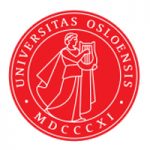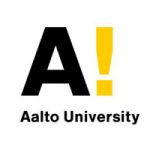项目介绍
About the position
Position as PhD Research Fellow in futures of sustainability and technology available at the Department of Informatics.
No one can be appointed for more than one PhD Research Fellowship period at the University of Oslo. Starting date no later than October 1, 2025.
The fellowship period is three (3) years.
An extension of the appointment by up to twelve months may be considered, which will be devoted to career-enhancing compulsory work duties, e.g. teaching or supervision. This will be dependent on the qualifications of the applicant and the specific teaching needs of the department.Colourbox

Job description
Digital technologies increasingly permeate modern life – for individuals, groups, and societies at large. A particularly prominent example is how artificial intelligence (AI) has had a major breakthrough and is currently routinely promoted as the solution to a wide range of social, economic, and environmental problems. At the same time, AI gives rise to serious challenges in the same domains. For example, AI systems pose risks to the principles of equality and non-discrimination, they impact work and labour markets, and they have a significant carbon and environmental footprint. However, other digital technologies – existing or emerging – are also of interest to this project, including digital platforms, social robotics, XAR technologies, and more speculative potential near-future technologies.
This position entails researching the potential and limitations of AI for shaping one of two sustainability related topics through the methods of futures studies. The two available topics are:
– Digital technologies impact on democracy, democratic processes, and democratic capabilities. The linkages between democracy and digital technologies, such as AI, are many and complex. To better understand these, a systems thinking approach focusing on the dynamics of democracy as a system, coupled with futures studies, is important to better understand and anticipate potential benefits and challenges introduced by technology change.
– Environmental impacts of digital technologies from a socio-technical perspective. Many studies focus on quantified and isolated impacts of AI systems on environmental sustainability, such as greenhouse gas emissions, land and water use, and biological diversity. However, a more fundamental reappraisal of the role of digital technologies as both parts of natural and artificial environments and drivers of negative and positive change is necessary. A futures-oriented approach exploring the interlinkages between digital technologies and environmental sustainability could allow us to better understand and envision the future constellations of human-technological interactions and constellations for environmental sustainability.
The specific scope and focus of attention will be developed by the candidate in collaboration with the supervisor and relevant collaborators.
The candidate will, for example, develop and explore creative qualitative scenarios based on speculative fiction and science fiction, with a particular emphasis on the linkages between technological change and societal change.
The PhD candidate will be part of the Technology and Sustainable Futures research group. This is an interdisciplinary group of researchers bringing different knowledges and skills to the project. The candidate must be comfortable with highly interdisciplinary work and should ideally have a good grasp of technologies combined with a knowledge of and interest in, for example, methods, theories and approaches from social science, humanities, design, and futures studies.
Qualification requirements
The Faculty of Mathematics and Natural Sciences has a strategic ambition to be among Europe’s leading communities for research, education and innovation. Candidates for these fellowships will be selected in accordance with this, and expected to be in the upper segment of their class with respect to academic credentials.
- Master’s degree or equivalent in informatics, design, futures studies, social sciences, humanities
- Foreign completed degree (M.Sc.-level) corresponding to a minimum of four years in the Norwegian educational system
- Fluent oral and written communication skills in English
Candidates without a master’s degree have until 30 June 2025 to complete the final exam.
Desired qualifications:
- Experience or training in, for example, strategy, futures studies, scenario plan-ning, socio-technical analysis
- An interdisciplinary educational background
- An open and critical approach to digital technologies and their promises and pitfalls
- A good grasp of the nature, limits, and potential of digital technologies
- Experience either working with or studying the linkages between digital tech-nologies and economic, social, environmental, or political phenomena
Grade requirements:
- The average grade point for courses included in the Bachelor’s degree must be C or better in the Norwegian educational system
- The average grade point for courses included in the Master’s degree must be B or better in the Norwegian educational system
- The Master’s thesis must have the grade B or better in the Norwegian educational system
Language requirements:
- Fluent oral and written communication skills in English
English requirements for applicants from outside of EU/EEA/EFTA countries and exemptions from the requirements:
The purpose of the fellowship is research training leading to the successful completion of a PhD degree. For more information see:
Personal skills
- Intellectually curious and open to a wide diversity of perspectives, theories, and methodologies
- Creative, critical, and open to the exploration and serious consideration of radically different ways of organizing society and evaluation the role of technology in it
- An interest in working together with others in an intellectually stimulating and challenging environment where we together develop the research group into a leading institution for systems and futures oriented studies of digital technology and sustainability
We offer
- Salary NOK 536 200 – 575 400 per year depending on qualifications and seniority as PhD Research Fellow (position code 1017).
- Attractive welfare benefits and a generous pension agreement
- Vibrant international academic environment
- Career development programmes.
- Oslo’s family-friendly surroundings with their rich opportunities for culture and outdoor activities
Inclusive worklife and diversity at UiO
Inclusion and diversity are a strength. The University of Oslo has a personnel policy objective of achieving a balanced gender composition. Furthermore, we want employees with diverse professional expertise, life experience and perspectives.
If there are qualified applicants with disabilities, employment gaps or immigrant background, we will invite at least one applicant from each of these categories to an interview.
We hope that you will apply for the position.
More information about gender equality initiatives at UiO can be found here.
How to apply
The application must include:
- Cover letter – statement of motivation and research interests
- A research proposal (maximum 1500 words) describing a tentative agenda for the applicant’s Ph.D. project as it relates to digital technology and either democracy or environmental impacts. The proposal should clearly convey how and what kind of futures studies methods and approaches will be used. This will be used to evaluate the applicant’s interests and alignment with the supervisor and research group and will not necessarily be the basis of the final Ph.D. project proposal.
- CV (summarizing education, positions and academic work – scientific publications)
- Copies of the original Bachelor and Master’s degree diploma, transcripts of records
- Letters of recommendation
- Documentation of English proficiency
- List of publications and academic work that the applicant wishes to be considered by the evaluation committee
- Names and contact details of 2-3 references (name, relation to candidate, e-mail and telephone number)
When applying for the position, we ask you to retrieve your education results from Vitnemålsportalen.no. If your education results are not available through Vitnemålsportalen, we ask you to upload copies of your original transcripts or grades. Please note that all documentation must be in English or a Scandinavian language. Foreign applicants should attach an official explanation of their University’s grading system.
The application with attachments must be delivered in our electronic recruiting system (please follow the link “Apply for this job”).
General information
The best qualified candidates will invited for interviews.
Applicant lists can be published in accordance with Norwegian Freedom of Information Act § 25. When you apply for a position with us, your name will appear on the public applicant list. It is possible to request to be excluded from this list. You must justify why you want an exemption from publication and we will then decide whether we can grant your request. If we can’t, you will hear from us.
Please refer to Regulations for the Act on universities and colleges chapter 3 (Norwegian), Guidelines concerning appointment to post doctoral and research posts at UiO (Norwegian) and Regulations for the degree of Philosophiae Doctor (PhD) at the University of Oslo.
The University of Oslo has a transfer agreement with all employees that is intended to secure the rights to all research results etc.
联系方式
电话: (+47) 22 85 50 50相关项目推荐
KD博士实时收录全球顶尖院校的博士项目,总有一个项目等着你!





